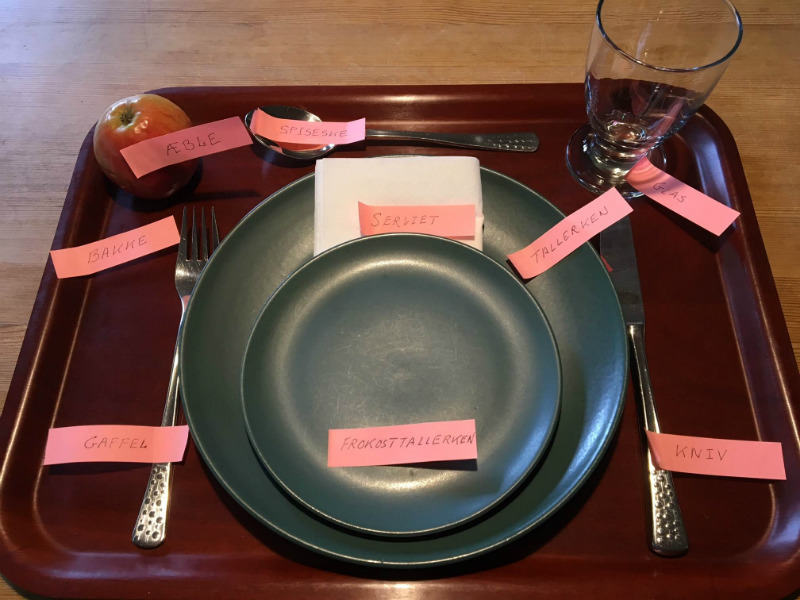Good Advice from Newcomers
Some newcomers to Ringkøbing-Skjern Municipality have given us some pieces of good advice as to how to become good at Danish:
- Sign up for Danish classes as quickly as possible and make an effort to learn the language. It is important to learn Danish as quickly as possible.
- Always turn on Danish subtitles if you are watching foreign films, and watch Danish films, too.
- Buy a small notebook and jot down new words that you learn. Or write down when you are in doubt about anything, so you remember to ask the next time you speak to a Dane.
- Take snaps with your mobile, e.g. when you see different signs in town or in nature. Ask your neighbour or colleague for help for pronunciation or understanding.
- Go to the library and borrow children’s dictionaries for free, so you can expand your vocabulary, and borrow children’s easy-readers. Ask the librarians for advice - they will gladly help you.
- Put small post-it notes on things in the kitchen cupboard and in your home, so you automatically practice Danish words.
- Speak with the Danes. Venture into it, even though you do not quite master it yet.
- Laugh at yourself when you make a linguistic error. Danes love self-irony.

Foto: AGM
The Language can be Tricky
As a newcomer you will of course experience that the language may be tricky. It can be hard to understand, and there are words, which are difficult to pronounce. Furthermore, the Danes love teasing a little. You will definitely experience an almost impossible task to begin with, when the Danes want you to pronounce: “Rødgrød med fløde og mælk”. (Red berry pudding with cream and milk). In return it elicits laughter. Do joke with your own linguistic mistakes. The Danes love self-irony.

Rødgrød med fløde - Foto:AGM
The language may easily give rise to misunderstandings. Several times a newcomer was puzzled by being told that the Danish children were having a good time going on a weekend trip to a scout hut. She could not understand that Danes had houses for spiders, and that - on top of that - they would let their children stay in them! Only after a long time she asked, and it was explained to her how scout life for children works. (Danish word for scout = spejder - pronounced “spider”!)
Many newcomers also become hesitant and insecure when the cashier at the till asks: “For the exact amount or over”? However, this question is just a friendly request as to whether you want a cashback.
What do we talk about?
Practice the language by speaking with Danes, but what do we Danes then talk about? Admittedly, this differs a lot, depending on whom we are together with, but on informal occasions we generally talk a lot about the weather.
There is always something to talk about, because the Danish weather is so unsettled. Sometimes it may seem as if the seasons even change in just one day.
The Danes are also fond of talking about food, holidays, children, leisure activities, and work, while most people in return would rather not talk to strangers about their wages or salaries or their personal relation to religion and politics.
The Danes like to help, so do ask when you are in doubt about something or repeat your question if you do not understand what is being said.
More about the Danes
On DENMARK.DK you can read more about Denmark and the Danes. You may for example be able to see a video depicting what foreign newcomers say about the Danish language: